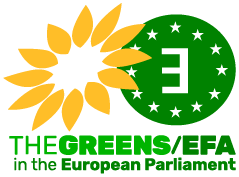On 12 November 2015, the European Food and Safety Authority (EFSA) stated that glyphosate, the active substance of the most heavily commercialised herbicide in the world, is « probably not carcinogenic » in humans. The position of EFSA contradicts the conclusions of the International Agency for Research on Cancer (IARC) which assessed glyphosate and affirmed in March 2015 that glyphosate is « probably carcinogenic ». The assessment by IARC was made in a total transparent way with the names and declarations of the experts involved which were published. This is not what happened in the case of the experts of EFSA. As the NGO Corporate Europe Observatory (CEO) revealed it, 80% of the experts did not disclose their conflicts of interests and EFSA partly based its conclusions on studies that are still kept secret. CEO asked EFSA to disclose the entirety of the studies but the Authority refused. The Greens/EFA fully support the initiative of CEO and we also sent a letter to request that all documents be disclosed by EFSA. That is the object of the letter you can find below:
And don’t hesitate to support our initiative and click on the letter to have access to the answer of EFSA: here
Dear Bernhard Url, Executive Director of the European Food Safety
Authority,
Under the right of access to documents in the EU treaties, as
enshrined in Regulation 1049/2001 and in the Aarhus Regulation, we
are requesting documents which contain the following information:
There is an alarming scientific controversy between the European
Food Safety Agency (EFSA) and the International Agency for Research
on Cancer of the World Health Organisation (IARC) with regard to
the carcinogenicity of glyphosate. In March 2015, IARC concluded
that glyphosate is a probable human carcinogen (category 2A) .
However, later that same year, in November 2015, EFSA concluded
that glyphosate is « unlikely to pose a carcinogenic hazard to
humans and the evidence does not support classification with regard
to its carcinogenic potential » .
Proper classification of glyphosate is crucial because it
potentially affects public health and entails important regulatory
consequences. It is therefore vital to investigate why there are
contradictory results in the EFSA and IARC assessments. To date
EFSA has explained that its « evaluation considered a large body of
evidence, including a number of studies not assessed by the IARC
which is one of the reasons for reaching different conclusions ».
This means that the EFSA peer review is based on unpublished
studies whose findings cannot yet be verified and subjected to
independent scrutiny.
The need to achieve clarity in this regard is both urgent and
evident. Glyphosate is used in around 750 pesticides commercialised
by 91 companies across the globe. According to data published by
IARC, glyphosate is registered in « over 130 countries as of 2010
and is probably the most heavily used herbicide in the world. »
The European Union is obliged to take decisions as openly as
possible so that it contributes to strengthening the principles of
democracy and respect for fundamental rights, and to ensure the
protection of human health, which the EU is committed to ensure in
all of its policies and activities.
Therefore we, members of the European Parliament, on the basis of
regulation (EC) No 1049/2001 on public access to documents and
regulation (EC) No 1367/2006 on the application of the provisions
of the Århus Convention, request access to all documents that have
been used during the EFSA peer review. Our request covers complete
documents and not only their summaries, and extends also to the
names of the authors and their declarations of conflicts of
interests.
Respectfully,
Heidi Hautala
Benedek Jávor
Michèle Rivasi
Bart Staes
[facebook_ilike]


